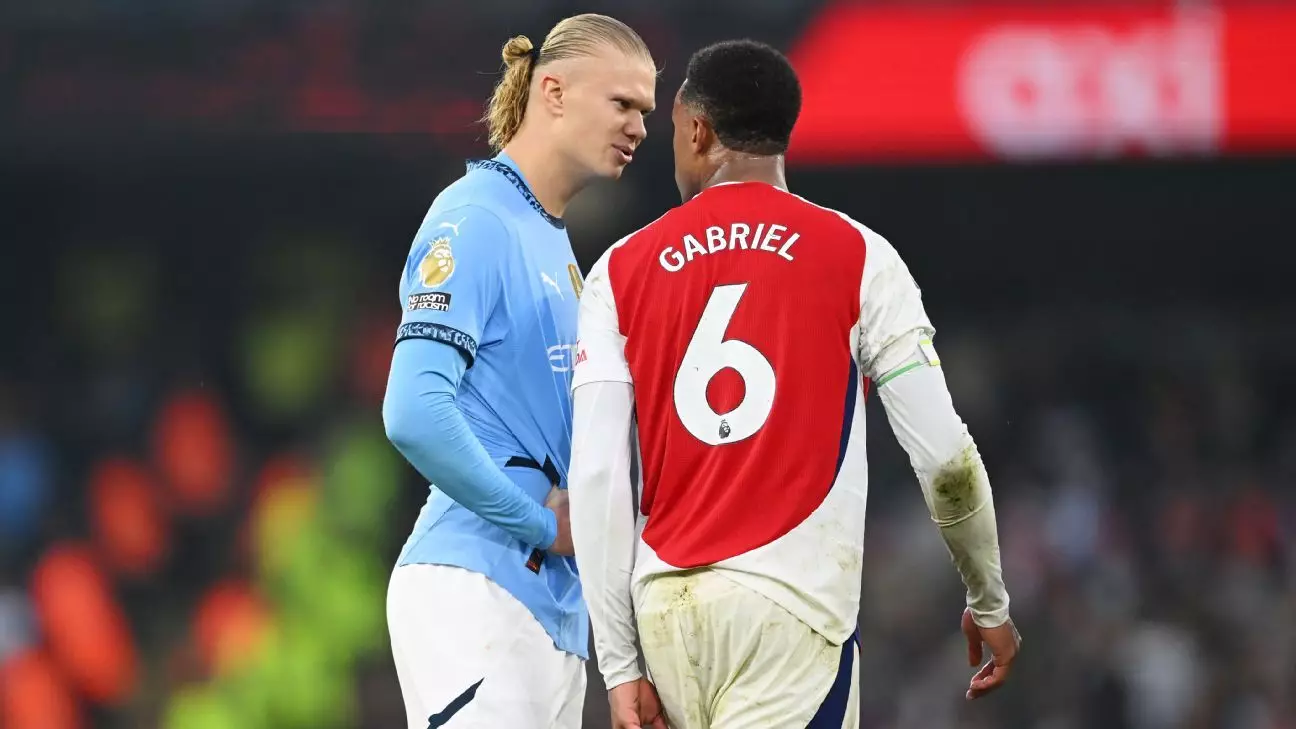In a thrilling encounter at Etihad Stadium, Erling Haaland’s performance was not just marked by his goal but also a controversial incident following Manchester City’s stoppage-time equaliser against Arsenal. The Norwegian striker was seen throwing a ball at Arsenal defender Gabriel Magalhães after John Stones netted the equalizer. This moment raised eyebrows, especially when it seemed to be a reaction born out of pent-up frustration stemming from the game’s tense atmosphere. Fortunately for Haaland, the referees, both on the field and in the VAR room, decided that the act did not warrant a punishment. As reported by ESPN, officials concluded that the situation had been effectively handled on-site.
What Makes a Game Heated?
The backdrop of this incident involves a high-stakes match where players’ emotions often run wild. Arsenal had been reduced to ten men due to Leandro Trossard’s dismissal, and City players felt that the Gunners were engaged in time-wasting tactics during the closing stages. Manuel Akanji, a defender for Manchester City, voiced his frustrations about Arsenal players going down frequently, which he described as a strategy that frustrated City players and drew attention to the officiating. Such moments highlight how psychological tactics can come into play during crucial matches—a concept essential for players and managers alike.
In the aftermath of the game’s conclusion, tensions soared further as Haaland got involved in a verbal exchange with Arsenal’s manager, Mikel Arteta. As Arteta shook hands with players on the pitch, Haaland confronted him, urging him to “stay humble.” This comment, delivered in the heat of the moment, signaled a broader narrative about sportsmanship and respect among competitors. The lack of a response from Arteta further emphasized the charged environment surrounding the game.
Haaland’s altercation extended to Gabriel Jesus, where he called the Arsenal striker a “clown” in a show of both disdain and rivalry. Such incidents not only act as catalysts for future confrontations but also provide insight into the personalities of the players involved. In competitive sports, where passion drives performance, these exchanges often shape the narrative of the season.
While the aftermath of the match remains a talking point, Manchester City manager Pep Guardiola faces his own set of challenges moving forward. With a Carabao Cup fixture against Watford just two days after this dramatic draw, the scheduling poses a dilemma. Key players like Kevin De Bruyne are sidelined due to injury, prompting Guardiola to consider an entirely different lineup. His optimism, expressed when he stated, “I don’t think it’ll be long” regarding De Bruyne’s recovery, exemplifies the resilience needed in sports management to navigate through such hurdles.
Ultimately, the events following the match against Arsenal encapsulate the volatility and emotional layers of professional soccer. Players’ tempers, various strategies, and management decisions intertwine, creating a compelling story that transcends beyond the 90 minutes on the pitch. Such moments contribute to the overall drama of the season, reminding fans and players alike that football is as much about mental resilience and respect as it is about physical prowess.


Leave a Reply